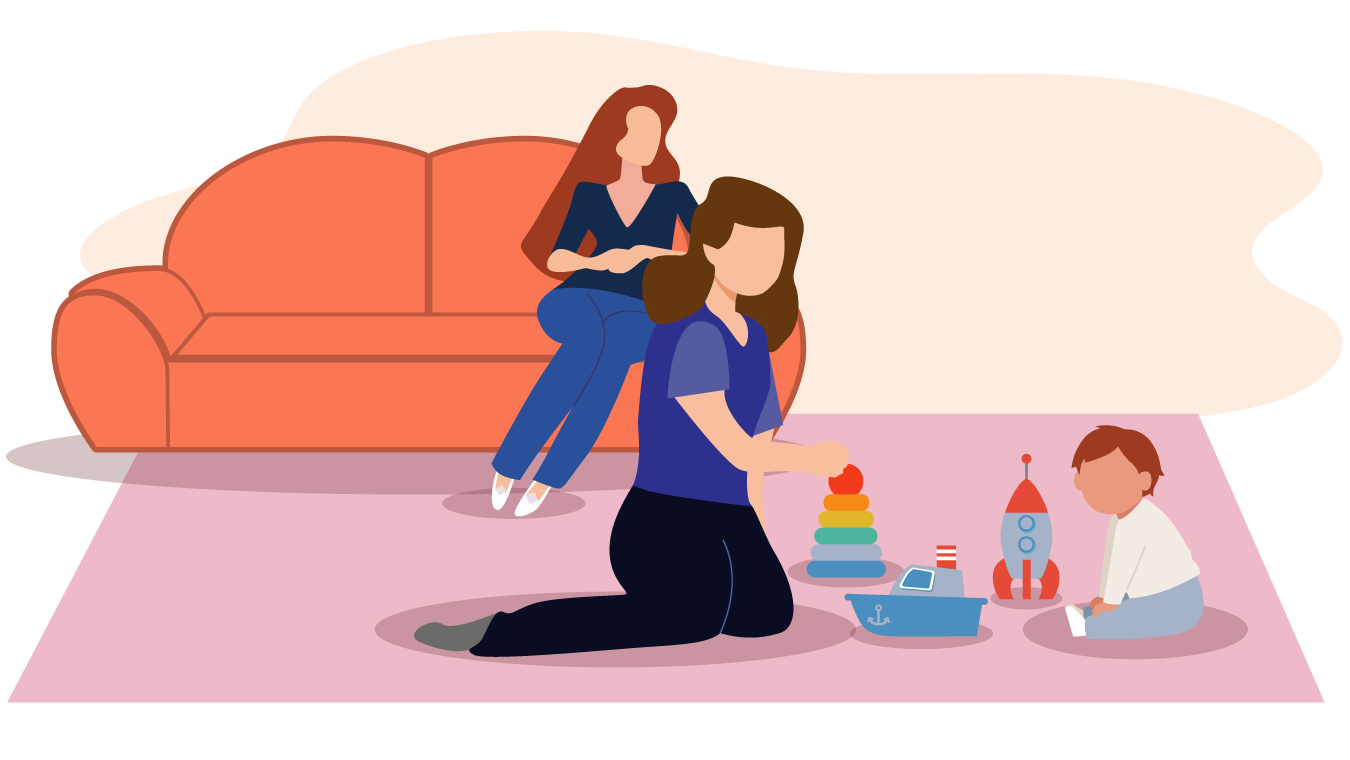Vision and Multisensory (Blind and Deaf) Impairment and Deafness

Deafness
Most babies are screened for deafness. This is soon after their birth as part of the NHS Neonatal Screening Programme. There are occasionally later diagnoses of permanent hearing loss.
If your child has permanent hearing loss, the Sensory Needs Service (SNS) will support your child following diagnosis.
Parent of Deaf Children Workshops
We offer workshops for parents of deaf children. They are designed to provide information, support, and guidance. These resources can help parents:
- understand their child's deafness,
- learn practical strategies for communication and support, and
- connect with other families facing similar challenges.
Please visit our Activities and Events page for upcoming workshop dates and times.
NHS East Sussex Healthcare
Paediatric (children’s) audiology provides a comprehensive, family friendly, integrated screening, diagnostic and rehabilitation service. This is for babies and children with hearing difficulties. You can find out more on the NHS East Sussex website:
The main NHS website provides extra information and advice about hearing loss:
Please note, some services / settings may refer to deafness as hearing impairment.
Sign Language
Sign languages are visual languages that use different:
- hand shapes,
- facial expressions,
- gestures, and
- body language.
Sign languages have their own vocabulary, construction and grammar. This is the same as a spoken languages.
There are approximately 300 sign languages in the world. The most common sign languages used in the UK are British Sign Language (BSL) and Irish Sign Language (ISL). BSL is a distinct language with its own grammar and syntax.
Many deaf children who use sign might also use speech too. This is known as Sign Supported English (SSE). SSE uses signs from BSL but in the same word order as spoken English. This is often to support communication with those who are not proficient in BSL.
Sign systems such as Signalong and Makaton are different to sign languages.
You can find out more about sign language on the National Deaf Children's Society website:
Vision or Vision Impaired
Referrals for children and young people with vision impairments come primarily from health. Referrals from school with clinical evidence are required. This is because problems are sometimes not fully evident until a child starts school.
If your child has permanent vision impairment, the Sensory Needs Service (SNS) will provide you and your family with specialist support.
The SNS do not provide support for children whose vision is corrected with glasses. Opticians provide this care. SNS would only be needed if there were other conditions impacting on their vision, as well as this:
School Health Service
When your child starts school, the School Health Service will see them. They will check their vision, in line with government guidelines. Checking their vision aged 4 to 5 years is important.
There is more information on the NHS East Sussex Children website:
The main NHS website provides extra information and advice about blindness and vision loss:
Please note, some services / settings may refer to vision impairment as visual impairment.
Deafblind or Multi-Sensory Impaired
Deafblindness is a combination of sight and hearing loss. It affects a child’s ability to communicate, access all kinds of information, and get around. Children born with a multi-sensory impairment may also have physical or learning needs.
If your child has multi-sensory impairment, the Sensory Needs Service will provide you and your family with specialist help from the start:
Millbrook Healthcare Group
The Millbrook Healthcare Group provide healthcare services on behalf of the NHS and local authorities. This includes sensory impairment services.
Find out more by visiting the Millbrook Healthcare Group website
The main NHS website provides extra information and advice about deafblindness:
Additional Help and Services
Amaze SENDIASS
Amaze SENDIASS (Special Educational Needs and Disabilities Information Advice and Support Service) are a local charity. They offer free, independent, and impartial advice for all matters relating to SEND. Contact Amaze SENDIASS by:
- Phone - 01273 772 289
- Email - sendiass@amazesussex.org.uk
Visit the Amaze SENDIASS web page.
East Sussex Local Offer directory of services
You can visit our SEND-specific online directory, hosted on East Sussex 1Space. The directory lists many different services both throughout the county and online. Services cover many topics, including:
- Advice, Guidance and Support Groups
- Activities and Events
- Mental Health and Wellbeing Support
Visit the East Sussex Local Offer directory.
NHS - Health A to Z
The East Sussex Local Offer aims to provide as much information as possible. There may be some conditions that aren't covered in thorough detail. The NHS website has pages that list all conditions. These pages provide information and advice on how to get extra support:
Visit the NHS Health A to Z web page.
Glossary of East Sussex SEND Terms
We explain some of the terms used on this website on our page, Glossary of East Sussex SEND Terms.